COVER STORY
THE FRONT-RUNNERS
LMD invited a panel consisting of five readers who are known in business and civic circles to profile the five ‘main presidential candidates’ – by listing their perceived pros and cons.
The candidates appear in the same order as listed by the Election Commission.
ANURA KUMARA DISSANAYAKA
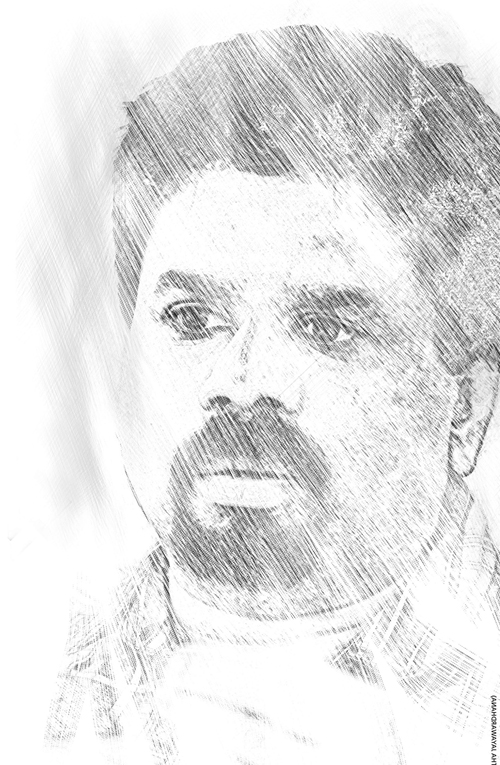 POLITICAL PARTY
POLITICAL PARTY
National People’s Power Movement
AGE
50
ALMA MATER
Thambuttegama Central College
QUALIFICATIONS
BSc in Physics (University of Peradeniya)
CAREER HIGHLIGHTS
Chief Opposition Whip (September 2015-December 2018)
Minister of Agriculture, Livestock, Land and Irrigation (2004-2005)
PROS
- Has 30 years of experience in politics.
- Is in tune with social issues and has been a voice of the people he represents, as well as an active parliamentarian.
- Represents a party that has made an effort to embrace progressive values.
Vraîe Cally Balthazaar (Citizen and social activist)
- Has the image of a passionate leader.
- Is perceived as a leader with real purpose, and seems to have the national interest and security at heart.
- Has an image of an inclusive leader who will respect all citizens of the country.
- Is seemingly a good leader with decent moral values sans corruption.
- Has an economic vision to support national industries.
- Has the image of a leader who will uphold democracy – and its institutions and traditions.
Channa Manoharan (In his personal capacity)
- Has shifted the radical and revolutionary image of the Janatha Vimukthi Peramuna (JVP) to the mainstream of politics.
- Stands for economic justice to the poor.
- Has played a constructive role in parliament, standing for values of good governance, anticorruption and the rule of law.
- Has generated people power to oppose the 52 day constitutional coup violations of the rule of law and democracy.
- Was part of the good governance alliance of 2015 that supported a common candidate.
- The JVP is no longer a Sinhalese nationalist party that is anti-minority under his leadership.
Dr. Jehan Perera (Executive Director – National Peace Council of Sri Lanka)
- Is a principled politician and led his party to great reform to become a truly progressive force.
- Has considerable political experience and the ability to mobilise a sizeable grassroots movement.
- Has taken brave and progressive stances on issues by becoming the first presidential candidate in Sri Lankan history to openly commit to non-discrimination of LGBT individuals.
- Is likely to respect the constitutional and ceremonial role of the presidency.
Aritha Wickramasinghe (Solicitor – England and Wales)
- Appears to be honest and sincere in his beliefs and agenda.Is consistent in his stand against corruption.
Dr. Arittha Wikramanayake (In his personal capacity)
CONS
- Represents a party that has a history of violence.
Vraîe Cally Balthazaar
- Perceived lack of electability despite strong values – thus lacks political momentum.
- Narrow international affiliations.
- His economic vision is unclear to the business community.
- There’s a fear of the ‘old JVP’ emerging once in power.
- Has a negative image among university students.
- Is inexperienced in governing a nation.
- Has an image of being all talk and no delivery.
Channa Manoharan
- Needs to reconsider whether to affirm his popularity at the cost of dividing the vote against narrow nationalism.
Dr. Jehan Perera
- Represents a party that carries negative historical baggage, which it hasn’t confronted.
- May become isolated in a parliament essentially controlled by parties that are not his – and therefore, he may not be able to implement his promises.
- The JVP’s left and anticapitalistic sentiments isolate the middle class and urban professionals.
- Not engaging sufficiently with the urban classes.
Aritha Wickramasinghe
- Often carried away by ‘socialist’ thinking.
- Lacks experience in governing.
- Cannot attract broad support because of the history of the JVP.
Dr. Arittha Wikramanayake
ROHAN PALLEWATTA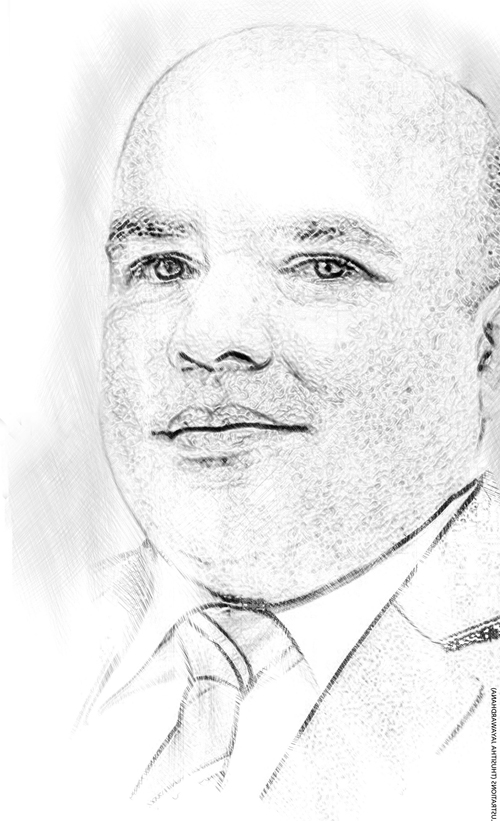
POLITICAL PARTY
Jathika Sangwardhena Peramuna
AGE
52
ALMA MATER
St. Anthony’s College
QUALIFICATIONS
Attorney at law (Sri Lanka Law College)
BA (English Special)
MBA (University of Sri Jayewardenepura)
Honorary Doctor of Engineering (University of Bolton)
CAREER HIGHLIGHTS
Executive Chairman of Lanka Harness Company
AWARDS
Ten Outstanding Young Persons (TOYP) of Sri Lanka award 2006
Postgraduate Institute of Management Alumni (PIMA) Platinum award (2013)
University of Sri Jayewardenepura’s Entrepreneur of the Nation (2013)
PIMA Diamond Shield for Life Time Achievement Award (2016)
PROS
- A successful businessman who wants to use the same principles of business to steer the country forward.
Vraîe Cally Balthazaar
- Has a track record of being a successful businessman.
- Has a development oriented economic vision.
Channa Manoharan
- Is well-known in business circles as an innovator (but not known to the general public).
- Seeks to transfer his success in business to running government.
- Has experience in international commerce with business dealings in 17 countries.
- Believes that economics trumps issues of nationalism and religion – and if the economy thrives, other problems will subside.
Dr. Jehan Perera
- Not a politician and will be the first person to ascend to the presidency without the political baggage of previous executive presidents if elected.
- Highly educated and has a proven track record in business.
- His political party (the Social Democrats) is promising 15 cabinet ministers, a free and fair market with the role of the state limited to regulation, and putting a stop to displaying pictures of the president, prime minister and politicians in public offices.
- Is likely to respect the constitutional and ceremonial role of the presidency.
Aritha Wickramasinghe
CONS
- Represents a party that has no prior experience in government or governance.
Vraîe Cally Balthazaar
- Is inexperienced in politics and national affairs – and may struggle to execute.
- Leads a party that is helmed by a team of academics – there is thus a danger of being highly theoretical.
- Unknown to the masses.
Channa Manoharan
- Needs to publicise himself to the voting public in the short space of a month, and win their trust and confidence.
- Needs to explain his vision for governance as more than running a successful business or creating economic value.
Dr. Jehan Perera
- Not a politician and may find it difficult to navigate the challenges of a highly political post.
- May become isolated in a parliament essentially controlled by parties that are not his – and therefore, he may not be able to implement his promises.
- Lacks a proven political track record and his business experience may not be sufficient for the presidency.
- His abilities may be wasted on a presidency that will be largely ceremonial.
Aritha Wickramasinghe
SAJITH PREMADASA
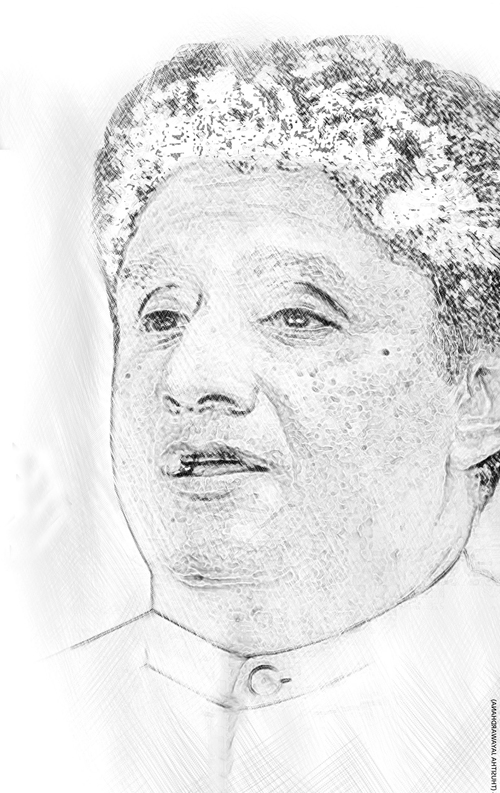
POLITICAL PARTY
New Democratic Front (NDF)
AGE
52
ALMA MATERS
Thomas’ Preparatory School
Royal College
Mill Hill School (London)
London School of Economics (LSE)
CAREER HIGHLIGHTS
Minister of Housing,
Construction and Cultural Affairs (December 2018-present)
Minister of Housing and Construction (September 2015-October 2018)
Minister of Housing and Samurdhi (January-August 2015)
Deputy Minister of Health (2001-2004)
PROS
- Has many years of experience in politics.
Vraîe Cally Balthazaar
- Has strong appeal and a connection with rural masses.
- Has an image of being a strong and hands-on administrator.
- Is a good orator.
- Has the image of a pro-poor leader with balanced economic policies.
- Has the image of being a clean politician.
- Has the legacy of the UNP’s pro-business and investor friendly policies.
- Has an image of a leader with the national interest at heart – i.e. national security and sovereignty.
- Has an image of an inclusive leader who respects all citizens of the country.
- Is a leader with democratic values who respects democracy, and its institutions and traditions.
Channa Manoharan
- Is the son of a former president who has a great deal of political experience.
- Has sought to build on his father’s legacy of providing security to the poor through housing and by focussing on their needs.
- Has kept a low ideological profile and preserved his reputation.
- Has skilfully cultivated a Sinhalese-Buddhist base without opposing the internationalist policies of his party leadership.
- Has demonstrated careful and balanced opinions on a wide range of subjects in pre-election small group discussions.
Dr. Jehan Perera
- Has a long and proven track record of successful and timely implementation of programmes.
- Has branded himself as an open, inclusive and democratic leader – if he lives up to such values, coupled with his political and technocratic skills, one would expect a successful presidency.
- Has wide appeal among ethnic and religious minorities, and is politically astute.
- Will bring youthful vigour to a political establishment that is tired of ageing and dying politicians.
Aritha Wickramasinghe
- Promises a new era of politics and is a relatively fresh candidate.
- Offers the possibility that he might bring in a new team of young technocrats.
Dr. Arittha Wikramanayake
CONS
- A clear power struggle even in the run-up to the election between the prime minister and him is a sign of not having sufficient autonomy – given that he will have to continue to work under Ranil Wickremesinghe’s leadership.
- Has been a bystander during many of the issues that have confronted the incumbent government.
Vraîe Cally Balthazaar
- His nomination came in late, and is thus a comparatively less coherent and organised political machinery.
- Has an apparent lack of connect with the business community, and clarity in economic vision and policies.
- Carries the baggage of incumbency and the post-Easter Sunday backlash, as being part of an incompetent and corrupt administration that has been unable to deliver the basics and protect the national interest.
- Perceived influence of the old guard in the UNP and Ranil Wickremesinghe loyalists – therefore, real change may not eventuate.
- Perceived overreliance on alliance partners and parties representing ethnic factions.
Channa Manoharan
- Needs to address the issues of policies that fit in with the realities of a multiethnic and multi-religious country in a globalised economy.
Dr. Jehan Perera
- His abilities may be wasted on a presidency that will be largely ceremonial.
- May be frustrated with the status quo and by a prime minister who is essentially in charge.
- Has a nationalist and populist streak that risks the UNP returning to the right-wing period of the 1980s.
- Will have to work with some dubious and questionable ministers who haven’t lived up to the values that he is promoting in his campaign.
Aritha Wickramasinghe
- Has not comprehensively spelt out his vision or plans for the country other than to speak in broad platitudes.Relatively untested.
Dr. Arittha Wikramanayake
GOTABAYA RAJAPAKSA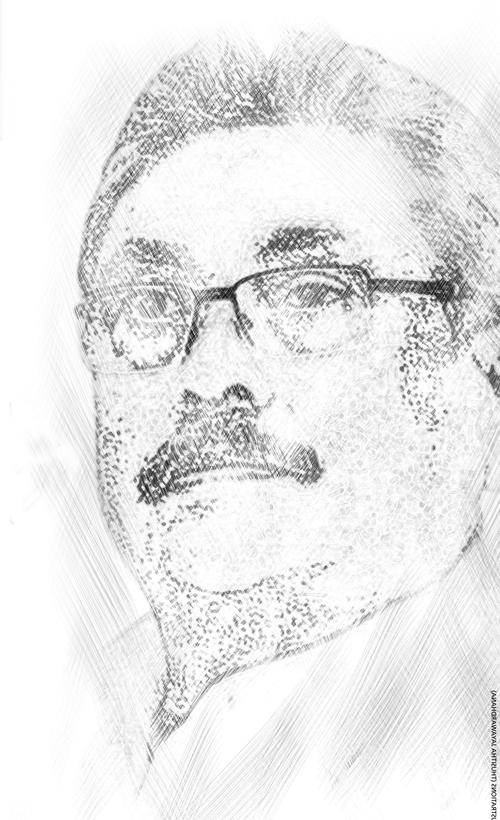
POLITICAL PARTY
Sri Lanka Podujana Peramuna (SLPP)
AGE
70
ALMA MATER
Ananda College
QUALIFICATIONS
MA in Defence and Strategic Studies (University of Madras)
Postgraduate diploma in IT (University of Colombo)
Doctor of Letters – Honoris Causa (University of Colombo)
CAREER HIGHLIGHTS
Secretary to the Ministry of Defence and Urban Development (November 2005-January 2015)
Military service – Sri Lanka Army (1971-1992)
AWARDS
Rana Wickrama Padakkama
Rana Sura Padakkama
PROS
- Has experience working in government.
- Has built a network of professionals who are instrumental in creating policies and strategies.
Vraîe Cally Balthazaar
- Is a capable administrator with the ability to execute despite a weak bureaucracy.
- Has a legacy of being a war hero.
- Has a strong image of someone who will protect the national interest and security.
- Has the ability to drive discipline in the public sphere.
- Has strong relationships with China that will benefit investments and infrastructure development.
- Has a robust team of professionals and businesspeople as advisers.
- Has the support of former president Mahinda Rajapaksa.
- Has a strong urban vote base.
Channa Manoharan
- Was one of the key figures in the military destruction of the LTTE.
- Promises strong and efficient government.
- Is viewed as a doer and implementer who ended a war and beautified Colombo.
Dr. Jehan Perera
- His Viyathmaga and Eliya platforms have brought more professional engagement on political issues.
- His advisers are educated and professional technocrats – and one can expect his presidency to be led by technocracy.
- Has a proven track record of successful and timely imple-mentation of programmes.
- Seems to have reinvented himself as an open, inclusive and democratic leader – if he lives up to those values and coupled with his technocratic skills, one would expect a successful presidency.
Aritha Wickramasinghe
- Has a reputation for getting things done in areas that were assigned to him.
- Displayed a vision for urban development.
- Might offer the prospect of discipline, which is lacking.
Dr. Arittha Wikramanayake
CONS
- Is a military candidate.
- Has several charges and cases against him.
- Has a history of aggression towards the media.
- Will continue to work with those who served in the Mahinda Rajapaksa regime – a collection of corrupt politicians.
Vraîe Cally Balthazaar
- Has a reputation of a ‘the end justifies the means’ approach to solutions.
- Has an image of a non-inclusive leader with many biases.
- Has a legacy of being strongly influenced by his family and extended family.
- Has a legacy of being part of a corrupt administration – albeit not proven.
- The possibility of being dominated by Mahinda Rajapaksa and the old guard.
- Has an image of being an autocrat with scant regard for democratic institutions, practices and traditions.
- Has a weak relationship with the US, the EU and India, which will impact foreign direct investment (FDI), trade and business.
Channa Manoharan
- Champions patriotism and nationalism – with his closest allies being Sinhalese nationalists and former military personnel.
- Has promised to release all military personnel accused of crimes on taking office.
- Has never held elected office or engaged in party politics and the compromises they entail.
- Needs to demonstrate a better understanding of the systems of checks and balances, separation of powers and respect for the rule of law.
- Needs to win the confidence of ethnic and religious minorities.
Dr. Jehan Perera
- Has a poor reputation as a democrat – and an exclusivist and nationalist appeal, which has isolated ethnic and religious minorities.
- If elected president, it may be a challenge for him to live up to his rebranded image as an inclusive democrat unless he’s genuinely committed to personal reform.
- If he wins, he’ll be Sri Lanka’s first president to ascend the presidency in the midst of various unanswered criminal and civil allegations and cases against him – it would have been better for him to have answered the allegations, proven his innocence and ascended the presidency on a clean slate.
- His presidency will pave the way for a government that would comprise people who have poor reputations and don’t match up to his values.
- His abilities as a technocrat may be wasted on a presidency that will be largely ceremonial – it may lead to frustration with the status quo as his control over government will be limited.
Aritha Wickramasinghe
- Has a negative reputation for violating the rights of others.
- Has publicly demonstrated a violent temper.
- Is surrounded by relations and henchmen reputed for thuggery and corruption, which negates his positives.
Dr. Arittha Wikramanayake
MAHESH SENANAYAKE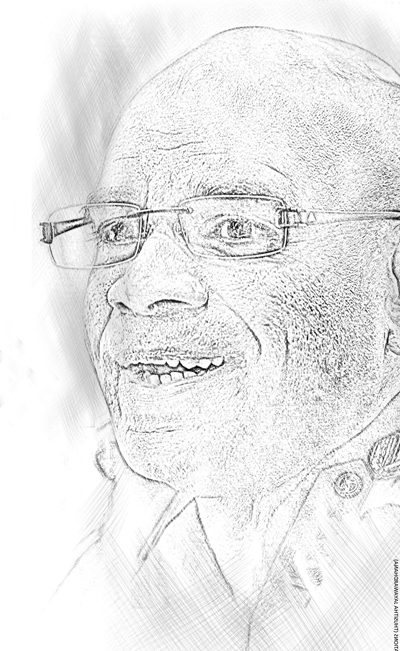
POLITICAL PARTY
National People’s Party (NPP)
AGE
57
ALMA MATERS
Ananda College
United States Army Command and General Staff College
QUALIFICATIONS
BSc in Civil Engineering (Jawaharlal Nehru University)
CAREER HIGHLIGHTS
Commander of the Army (July 2017-August 2019)
Military service – Sri Lanka Army (1983-2019)
AWARDS
Rana Wickrama Padakkama
Rana Sura Padakkama
Vishista Seva Vibhushanaya
Uttama Seva Padakkama
PROS
- Represents a movement that does not have any political history of corruption and nepotism
- Is backed by a team of professionals who collectively contribute to shaping policy and strategy – the candidate emerged from the collective as opposed to having the collective form around the candidate.
Vraîe Cally Balthazaar
- Was a gallant army commander who was injured in battle and returned to the battlefield.
- Left the country after the end of the war due to political victimisation.
- Kept a low profile until he rose to prominence in the aftermath of the Easter Sunday attacks.
- Became the public face of national security in the immediate post-Easter Sunday context when the political leadership lost credibility due to incompetence.
- Chosen by a civil society collective for good governance as its nonpartisan and nonpolitical candidate.
Dr. Jehan Perera
- Not a politician – and if elected, he will be the first person to ascend to the presidency without the political baggage of previous executive presidents.
- A remarkable military man with an enviable track record – his service during the war years and mature leadership he provided as Army Commander following the Easter Sunday attacks is admirable.
- Despite hailing from a military background, he has projected an inclusive and open personality, which will place him in favour of ethnic and religious minorities.
- Will likely respect the constitutional and ceremonial role of the presidency.
Aritha Wickramasinghe
CONS
- Is a military candidate.
- Represents a party that has no prior experience in government or governance.
Vraîe Cally Balthazaar
- Needs to reconsider his candidacy in dividing the vote against those whose policies are anathema to him.
Dr. Jehan Perera
- Not a politician and may find it difficult to navigate the challenges of a highly political post.
- May become isolated in a parliament essentially controlled by parties that are not his – and therefore, he may not be able to implement his promises.
- Doesn’t have a proven political track record and his military experience may not be sufficient for the presidency.
- Sets further precedence for military men to embark on political careers – this seems to symbolise a trend towards politicisation of the military, and a challenge by the military establishment of the dominant political establishments and their political leaders.
Aritha Wickramasinghe






Leave a comment